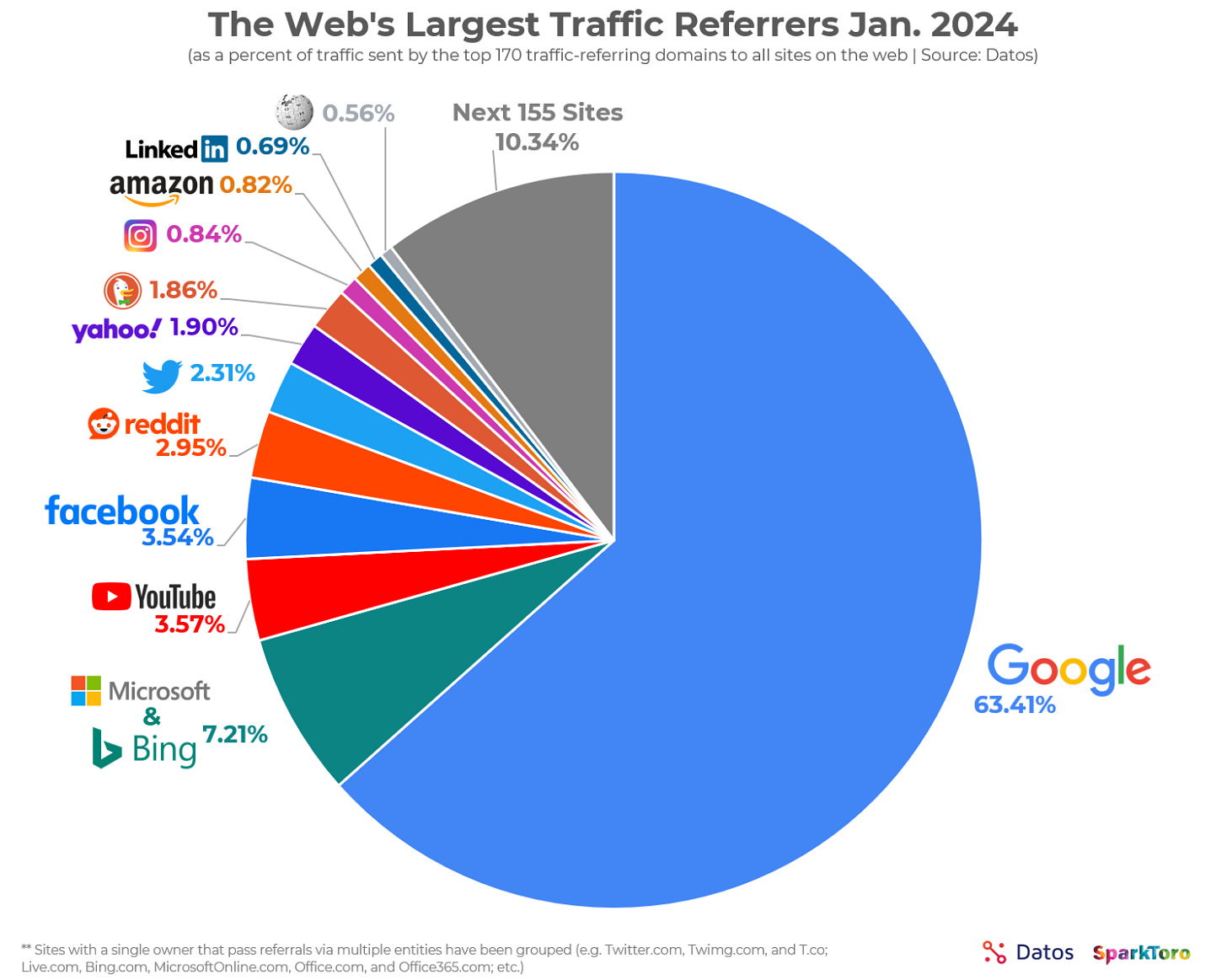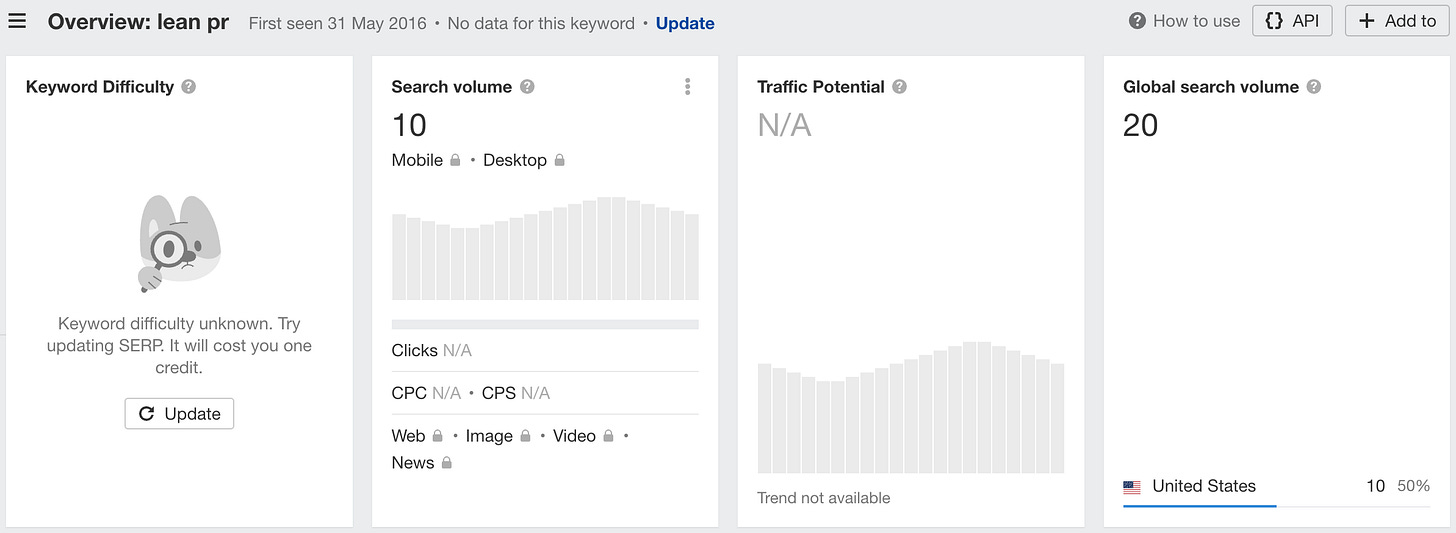How to Guarantee Website Traffic With Keyword Research
My easy, three-step process.
👋 Hey, I’m Casandra. I share research-backed business ideas to help you start and grow a business. This is a 🔒 Premium Edition 🔒 of Really Good Business Ideas.
I’ve generated millions of website visitors from Google searches over the past 10 years.
Today, I’ll share my 3-step keyword research process for finding topics that people are actually searching for and for which I can actually rank highly.
Too many people skip keyword research to their detriment.
Traffic from search engines, known as organic traffic, is the largest website traffic source. Approximately 63% of all referral traffic (referral traffic is traffic from another website that links to you) comes from Google.1

Google has been the leading traffic source for as long as I can remember, and although there may come a day when AI will be a bigger traffic source, that day is not today.
If you want to tap into this traffic source, you must be smart about it. You have to ensure there is demand for your content and that your content can compete, meaning it can rank in the top ten search results for your keyword (ideally, in the top 3). This is what keyword research is for.
There are two mistakes I see with keyword research all the time:
Mistake 1: Focusing on keywords that don’t get searched.
I once had a friend contact me for help optimizing their website. They provided public relations (PR) services and wanted to know how to rank for the keyword lean pr. They thought this term perfectly described what they offered, but I had to tell them not to bother because no one else used it. There would be no point in ranking for lean pr because no one searched it, and it wouldn’t drive any traffic.

Mistake 2: Focusing on keywords you’ll never rank for.
Oftentimes, once people figure out that they need to look for keywords with demand, they stop there and pick the keywords with the highest search volume, even though their website is very young and the keywords are extremely competitive.
For example, imagine a new chocolatier decided to try and rank for chocolate, even though there are probably hundreds of thousands of other websites competing for the same top ten search results. There’s no point in targeting a huge, competitive keyword like chocolate as a small website because you won’t be able to compete, and it won’t drive traffic.

Are both of these businesses doomed? No! They just need to work smarter.
Keyword research can help you avoid these costly mistakes.
The PR professional needs to choose keywords that actually get searched, like small business pr.

The chocolatier needs to find less competitive keywords like gluten free chocolate.

Are you wondering how to know which keywords get searched a lot and which are too competitive? Keep reading!
But before we dig in, it’ll be helpful to clarify a few things:
A keyword is anything typed into a search engine. It could be one word or an entire phrase. For example, shoes is a keyword and womens white canvas sneakers size is also a keyword.
The same keyword research principles apply to all search engines. I’m focusing on Google because it’s the most used search engine for English keywords so it presents the highest traffic opportunity. If, for example, you have a mobile app, you might want to apply these keyword research principles to your app store SEO instead.
The same keyword research principles apply to all forms of content. This includes articles like the one you’re reading, the copy on a product page, and the content on any other web pages you might create.
Keyword Research Data
To be successful with keyword research, we first need to understand what data we’ll use. There are three key inputs:
Search volume: How often is the keyword searched in Google?
Keyword competition: How difficult is it to outrank other websites for the keyword?
Keyword intent: What is the searcher trying to accomplish? If your content doesn’t match the keyword intent, it will not rank.
Let’s take a deeper look at all three.



